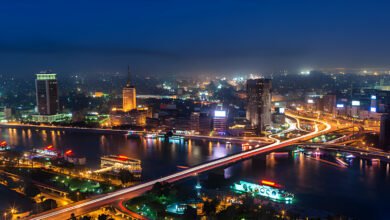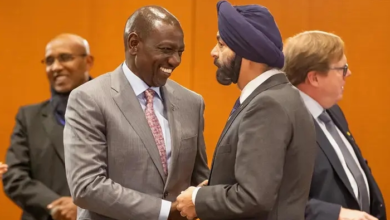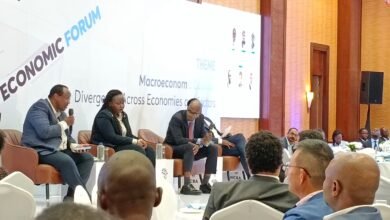
Kenya is among countries that will benefit from a one-year funding programme dubbed Food Shock Window which the International Monetary Fund (IMF) has established under its emergency financing instruments – the Rapid Credit Facility (RCF) and Rapid Financing Instrument (RFI) for countries to deal with biting food crisis.
Food Shock Window programme will provide an additional line of defence after grants and concessional financing for select countries on the looming food crisis occasioned by the ongoing war between Russia and Ukraine and coronavirus economic shocks.
The funding programme will also be extended to poor countries or better known, low-income countries globally, the IMF Managing Director Kristalina Georgieva said Saturday, September 30.
“With this new financing window, the IMF will be providing additional assistance to help people in vulnerable countries deal with one of the worst crises of all: hunger,” said Georgieva.
Food crisis is spreading around the globe with Georgieva saying a record 345 million people whose lives and livelihoods are in immediate danger from acute food insecurity.
Speaking to France24 on September 23, President William Ruto called on multilateral lender to intervene on the food crisis in Africa, warning that the worst drought in 40 years’ risks causing starvation in the Horn of Africa, adding that “3.1 million people are facing severe drought” in Kenya alone.
“This is no longer a country-by-country challenge. This is becoming a multilateral challenge,” he insisted, calling on multilateral institutions and lenders for support.
IMF’s new programme has been established with an undisclosed amount but has some conditions attached to it which counties will have to meet before receiving the aid.
Among the conditions is a country must show that the food import price shocks are creating a negative balance of payments impact of 0.3 percent of Gross Domestic Product (GDP).
Another condition is that a country must have negative cereals export shocks which would reach 0.8 percent of GDP. Borrowers with unsustainable debt would be denied.
In its report April, IMF said Kenya meets fiscal objective and put debt as a share of GDP firmly on a downward path over tax reforms being carried out by the Kenya Revenue Authority (KRA).
“Kenya’s fiscal position has been underpinned by strong tax revenue performance this year, buoyed by a robust economic recovery and the important tax policy measures already undertaken as part of Kenya’s multi-year plan to reduce debt-related vulnerabilities.
The combination of climate shocks, the pandemic and regional conflicts has disrupted food production and distribution, driving up the cost of feeding people and families.
Top of the chain is Russia’s war in Ukraine that has pushed the price of food and fertilizers even higher—hurting food importers and some exporters.
According to the World Bank, there are 27 low-income countries around the world but Kenya does not fall on the list.
They include Afghanistan, Burundi, Bukina Faso, Central Africa Republic, Chad, Democratic Republic of Congo, Eritrea, Ethiopia, Gambia and Guinea
Others are Guinea Bissau, Korea Democratic People’s Republic, Liberia, Madagascar, Malawi, Mali, Mozambique, Niger, Rwanda, Sierra Leone, Somalia, South Sudan, Sudan Syrian Arabic Republic, Togo, Uganda, Yemen and Zambia.





